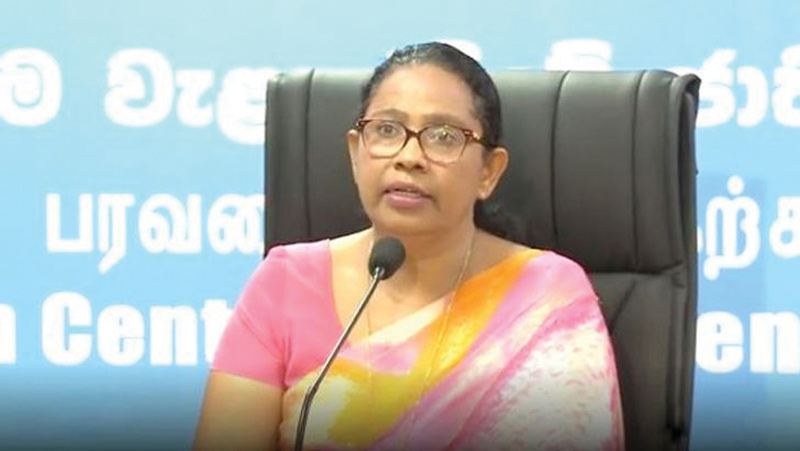The supply of the AstraZeneca vaccine in Sri Lanka has not been suspended and the second dose is planned to be given to those who received the first vaccine in early May, Minister of Health Pavithra Wanniarachchi stated in Parliament yesterday. (21)
Wanniarachchi pointed out that not only the AstraZeneca vaccine but also any vaccine could cause complications and that giving undue publicity to the rare allergic conditions of the vaccine could undermine public confidence in the vaccine.
Minister Wanniarachchi made these observations in reply to a question raised by the Opposition Leader Sajith Premadasa in Parliament under Standing Order 27(2).
Health Minister Wanniarachchi stated, “Complications can occur not only with the AstraZeneca vaccine but also after any vaccination. For example, one in four million children is at risk of contracting polio after being vaccinated against polio. One in 100,000 people will develop a throat allergy after most of the vaccines currently in use (rarely even fatal).
The Health Minister said: “Some persons vaccinated in some countries were reported to be having blood clots within a few weeks of receiving this vaccine. Six such cases have been reported in Sri Lanka and three of them have been fatal. According to the World Health Organization’s Committee on Vaccines and Side Effects, no direct link between blood clots and vaccines has been identified. The World Health Organization (WHO) has approved the continued use of this vaccine. A similar view has been put forward by the European Union’s European Medicines Agency.”
Minister Wanniarachchi further stated that the Government has taken several measures to identify such incidents. Wanniarachchi pointed out that a 24-hour hotline has been introduced to report any complications after receiving the vaccine via the telephone Number 011-3415985. The Minister also said that a special unit is ready at the Colombo General Hospital for such patients and those cases are referred to an expert committee.
Minister Wanniarachchi added: “Those vaccinated are advised to diagnose such allergic conditions in advance. Four days after receiving the vaccine, if there is headache, sore throat, shortness of breath or severe pain in the leg, it is advisable to seek medical treatment. A committee consisting of specialist physicians (AEFI - Adverse Event Following Immunization) has been appointed to look into the case of patients with chronic complications. The committee is chaired by the Director General of Health Services and represents specialists from various fields.”
Minister Wanniarachchi also stated that “the Epidemiology Unit has introduced a very specific methodology for reporting patients and the Ministry of Health accepts information released by the Epidemiology Division as official information. The information will also be released to the Government Information Department and through it to the media. I would like to inform you that data on a disease that spreads through the respiratory system cannot be hidden. I would like to remind you that such concealment is only for a very short period of time and doing so will result in large scale clusters. Health officials, who take the lead in controlling the disease, continue to make an active contribution to control the epidemic. Front line officers have not been removed from those activities.”
Minister Wanniarachchi revealed that several patients infected with South African and English varieties of COVID-19 virus have been identified in Sri Lanka so far. Because they are all properly quarantined, the risk of spreading the disease from them to society is very low. Samples of corona patients are further tested to identify new strains. Laboratory research to identify the virus strain is being carried out by the Department of Molecular Biology, University of Sri Jayewardenepura.”


